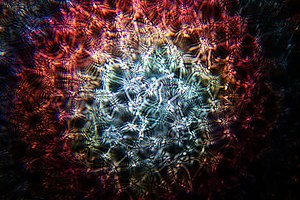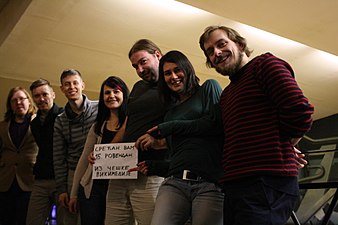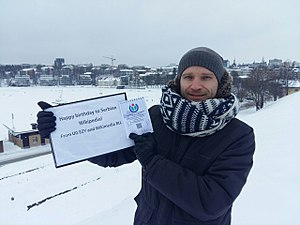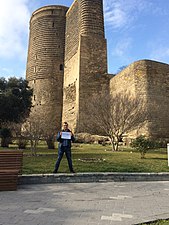CEE/Newsletter/February 2018/Full

Volume 2 • Issue 2 • February 2018
Contents • Single page view • Subscribe
| ◀ Previous Regional report |
▲ Contents |
Next ▶ Albania report |
CEE in the news
[edit]- Armenia
- Wikipedia is a place to “plant and harvest” free knowledge: Arminé Aghayan, Samir Elsharbaty, Wikimedia Blog, February 9th, 2018
- Ukraine
- See the winners from the 2017 Wiki Science Competition in Ukraine, Vira Motorko, Wikimedia Blog, February 7th, 2018
| ◀ Previous Ukraine report |
▲ Contents |
Next ▶ CEE in the news |
Regional report: #WeMissTurkey, Estonia's 100th anniversary, Wikimedia CEE Meeting preliminary survey; CEE Spring approaching
[edit]- #WeMissTurkey
From March 5-12, the Wikimedia Foundation will be sharing a series of messages about Turkish culture, history, sports, etc. from Wikimedia Foundation managed social media accounts such as @Wikipedia on Twitter. Messages will be shared that express sadness for missing the perspectives of Turkish people on our projects, and hopes that access to Wikipedia will be restored in Turkey. These messages will be directed to the people of Turkey, with the respective positive message and tone, and the use of the hashtag is not intended to directly confront the Turkish government. This messaging approach for the campaign is part of a broader, ongoing strategy from the Wikimedia Foundation to lift the block of Wikipedia in Turkey. Affiliates and volunteers around the world are invited to join the campaign. Additional information on the campaign and ways to participate will be available on Meta-Wiki.
- Estonia's 100th anniversary
To celebrate Estonia's 100th anniversary, Wikimedia Eesti asked more than a hundred public figures to contribute an article to Estonian Wikipedia, even if it's just a few lines. So far, the response has been reportedly overwhelmingly positive: 81 of the invited, including the president of Estonia, have already pledged to write an article, and a few others have joined in as well. The website of the campaign is: http://ev100.miljonpluss.ut.ee/
- Wikimedia CEE Meeting preliminary survey
On 24 February, the organizers of this year's Wikimedia CEE Meeting, Wikimedia Ukraine, distributed to CEE affiliates and communities a preliminary survey aimed at helping them plan the event prior to the application for a Wikimedia Foundation grant. The survey is expected to be indicative of the level of community engagement and of the importance of a variety of topics to the community.
- CEE Spring sprouting for the fourth time
Once again the time is nearing to roll up our sleeves. Not really because it is getting somewhat warmer outside, but because we are inspired by and enjoy collaborative efforts and encouraging regional content creation on Wikimedia project pages in the frames of the 2018 CEE Spring. Over the years, hundreds of contest participants have written thousands of articles in around 30 countries and project pages about our region, which has resulted in notably better coverage of CEE content on local Wikipedias. But, as you might expect, there are still vasts amounts of missing articles and red links, which need to be addressed, and Wikidata statements to be added. This proposes as an opportunity for many of us to join the team of local or international organizers and start fixing it!
Joining the team is easy - 13 communities already did! You can just add your name to the participants table! Actual organizing of the local competition will be, of course, much harder, but not to worry - the team of international organizers will make sure that you will be held accountable for doing everything that needs to be done. So just join at let’s get those CEE related articles and Wikidata statements sprouting! Let’s have another successful edition of CEE Spring!
| ◀ Previous CEE in the news |
▲ Contents |
Next ▶ Armenia report |
Albania report: Four editathons about Kosovo culture and heritage
[edit]On 3-4 February 2018 and 10-11 February 2018 in Pristina, WoALUG hosted four edit-a-thons for two weekends in a row. The events were supported by the Ministry of Affair in Kosovo. The subjects were mainly about Kosovo culture and heritage, while the participants were volunteers from Pristina and Peja.
| 3-4 February 2018 | 10-11 February 2018 | |
|---|---|---|
| New articles | 200 | 233 |
| Articles + page + category | 350 | 400 |
| Edits | 1000 | 1500 |
| Content added (bytes added) | 529326 | 580265 |
| Contributing Users | 35 | 40 |
- Photos from the events
- Full documentation can be found here: https://sq.wikipedia.org/wiki/Wikipedia:Wiki_Academy_Kosovo_2018
| ◀ Previous Albania report |
▲ Contents |
Next ▶ Austria report |
Armenia report: Winter wikicamp, School wikiclub, and ISO code obtained for the Western Armenian Language
[edit]Winter Wikicamp 2018
[edit]- By Davit Saroyan, Lilit Tarkhanyan (Wikimedia Armenia)
“I create a vital article” campaign was launched in December, where editors and interested people were invited to edit one of the most important articles every Wikipedia should have. This campaign was planned to include various events aimed at the editing process and promotion of the 1000 vital articles. As a part of the efforts to improve the 1000 vital articles on the Armenian Wikipedia, the originally planned youth winter camp of 2018, was decided to dedicate to the “I create a vital article” campaign. Wikimedia Armenia with the collaboration of “ARMACAD” organization announced the launch of the WikiCamp via different social media. The announcement attracted over 207 specialists of different backgrounds out of which the selection committee chose 53 participants. All the confirmed participants were sent the list of the “1000 vital articles” and were asked to choose the article on which they were going to work during the camp.
The Winter WikiCamp took place in Aghveran from the 2nd to 8th February, 2018. The camp was enriched with discussions, role play games, cultural events, and group work. The camp was highly interactive and participatory to enhance learning, strengthen the language and editing skills of the Wikicampers.
The wiki-workshop was opened with a presentation on the Wikimedia Movement, Wikipedia and “I create a vital article” campaign. Wikimedia Armenia staff and volunteers then opened the editing sessions by groups, introducing the ground rules and editing tools to the participants.
The groups then went on to the translation and editing of their previously chosen articles, beginning with the article summaries. The process of the workshop was assisted by Wikiteam which comprised of experienced wikieditors who made the workshops interesting, interactive, educative, and participatory. The Wikicamp agenda was developed through a month long process, involving Wikimedia staff, campers, and volunteers. Sessions were designed to be as inclusive and interactive as possible, reflecting a two-way learning process between a specialist and experienced Wikipedia editor.
As a result, 27 vital articles were completed, the other 18 articles were partially improved. Those who were not able to complete the article at the camp were recommended on the next steps of the editing process after the Wikicamp. An evaluation was done at the end of the camp on the participants' opinion of the camp agenda, editing process, and logistics.
Among the applicants who were not selected for this camp, there were many who were in the waiting list because the selecting committee had given high points to their applications. These 34 applicants were invited to a four day edit-a-thon where they began working on 27 articles, out of which 5 were completed at the end of the camp.
-
Winter WikiCamp group photo
-
Edit-a-thon group photo
ISO 639-3 code obtained for the Western Armenian Language
[edit]- By Davit Saroyan (Wikimedia Armenia)

The efforts of Wikimedia Armenia to get separate ISO 639-3 language code for Western Armenian were finally succeeded. SIL International, the ISO 639-3 Registration Authority, decided to create the code element [hyw] for Western Armenian[1].
WMAM initiated this process three years ago when the collaboration with the Calouste Gulbenkian Foundation was established in order to foster and improve free content in Western Armenian. This resulted in "Western Armenian project" where Wikimedia Armenia through different events and activities started to disseminate and support the creation of Western Armenian content with the help of local and diaspora Western Armenian community members.
From the launch of the "Western Armenian project" we were challenged with the problem that Western Armenian has no ISO 639-3 language code which did not allow the community to split Western Armenian content into a separate language Wikipedia. This problem made lots of trouble for us, as hy.wiki often had two versions of the same page.
Wikimedia Armenia with Calouste Gulbenkian Foundation eventually decided to apply for code split[2].
This was done mainly with the help of Michael Everson. Besides WMAM and Armenian Communities Department of Calouste Gulbenkian foundation, there were also other parties involved, such as the department of Armenian Studies of the Institut National des Langues et Civilisations Orientales, Paris and other academic institutions. The ISO code confers, moreover, international recognition to Western Armenian as a distinct language branch which is important to advocate for online services and programmes provided by corporations in the field of information technologies.
“We are so pleased to see our collaboration with Wikimedia Armenia bear such an important result,” said Razmik Panossian, the Director of the Armenian Communities department at the Foundation. “We worked on the submission process together, and received invaluable support from international experts and prominent intellectuals, resulting in a very strong application.” The effective date for the use of the new code is 23 January 2018.
- References
- ↑ Comments received for ISO 639-3 Change Request 2017-023
- ↑ "An Important Milestone for Western Armenian - Armenian Communities". Armeniam Communities (in en-US). 2018-02-06. Retrieved 2018-02-16.
WikiClub in Yeghvard N1 school
[edit]- By Lilit Tarkhanyan (Wikimedia Armenia)
Twice a year Wikimedia Armenia organizes wiki seminars for the teachers of different regions of Armenia. The aim of such seminars is the promotion of wikiprojects among teachers who would later use them as education tools in their curriculum. In January one of the active Wikipedian teachers - Anahit Vardanyan, offered the school principal to open a WikiClub for the students. After a productive discussion and support of Wikimedia Armenia the WikiClub began to function at Yeghvard N1 high school since February 2. The students are working on Armenian Wikipedia creating various articles about Armenian culture.
| ◀ Previous Armenia report |
▲ Contents |
Next ▶ Bulgaria report |
Austria report: Wikidata outreach
[edit]For 2018 the Austrian chapter has set 3 ambitious goals regarding Wikidata:
- Educate more people about Wikidata
- Attract Wikidata editors to meet regularly offline
- Find and train more people that would like to hold workshops themselves
In order to reach out to potential participants we created a Twitter and Facebook group and started posting interesting facts about Austria (The Twitter account has more than 100 followers after 2 months of activity). We also connected to existing tech communities (programming meetups, data meetups, ...) that might be interested in using the data on Wikidata. Promoting the first event in these groups and our existing contact lists made the first event in 2018 (d:Wikidata:Events/Vienna/2018-02-03) a full success. A lot of people showed up and the atmosphere was warm and the discussions were interesting and a lot of fun.
The workshop focused on the basics of editing and SPARQL queries. Working through some basic examples a few times gave most participants the feeling that they understand Wikidata and would be able to contribute by themselves. After the first workshop some people were also interested in becoming trainers at the next workshop or hold lightning talks. At the moment we are very positive that a lot of people will come to the next workshops and that they will enrich our existing WMAT community in the future.
The discussions and questions focused about data quality on Wikidata and the way Wikidata is trying to positively influence the internet-of-data. Being able to find a source for a claim makes Wikidata more transparent than commercial data enterprises (e.g. a web search that results in a fact-box being displayed, usually without sources, i.e. being presented as a fact). Some people were also interested in using Wikibase themselves for their own data project and were happy to hear that the software that powers Wikidata is open source and easy to set up (http://wikiba.se/).
The lesson for the CEE community is:
- Dedicated Wikidata outreach is a good idea
- Dedicated Wikidata events are a good idea
We hope that other CEE communities will use these lessons and set up similar outreach programs.
Links
[edit]- Wikidata:Events/Vienna
- https://twitter.com/WikidataAT
- https://www.facebook.com/groups/152713008792158
- https://twitter.com/wikidatapl
- https://github.com/wmde/wikibase-docker (A docker container that makes it easy to set up a Wikibase instance)
| ◀ Previous Austria report |
▲ Contents |
Next ▶ Greece report |
Bulgaria report: The first Bulgarian wikitown presented at an International Tourist Fair in Sofia
[edit]
From 14th to 16th February in Sofia the first Bulgarian WikiTown initiative was presented at the International Tourist Fair "Holiday & SPA Expo". WikiBotevgrad, which was a cooperative initiative between Wikimedians of Bulgaria User Group, Botevgrad Municipality, Historical Museum of Botevgrad and the "Ivan Vazov" Town Library, started in October 2017 with the aim to consolidate the local community and promote volunteering and contributions to Wikimedia on regional topics.
The motto of the Botevgrad town's booth and one of the main accents in their presentation was the first wikitown in Bulgaria. On the first day of the tourist fair, a presentation for WikiBotevgrad was presented to participants from all over the country - representatives of the tourism business, branch organizations and academic lecturers. The booth of Botevgrad Municipality was visited by many attendants, including the Minister of Tourism, lecturers from Sofia University, International Business School, University of Forestry - Sofia, New Bulgarian University, and others. A number of university lecturers have committed to promoting WikiBotevgrad among their students. At the same time, a tourist website was created for the Botevgrad Municipality, where the WikiBotevgrad logo has links to Wikipedia in articles about the tourist sites and settlements in the municipality.
During the Fair, WikiBotevgrad was nominated for the Innovation Project of the Year for Modern Technologies.
Since the start of the initiative in October 2017, over 90 articles have been created and expanded, mainly in Bulgarian Wikipedia, about places, cultural, historical and natural sites, personalities and events related to the town of Botevgrad and the 12 villages in the Municipality. In recent months, three edit-a-thons in the city library and a photomarathon in the Historical Museum were organized for the local community. In addition, more than 550 photos from over 50 participants have been uploaded, most of which contributed to Wikipedia for the first time. Soon, students from the two language centers in the city will help with translation of articles in English. In May 2018, when the initiative completes, QR codes to Wikipedia will be placed on relevant locations in Botevgrad and the surrounding villages.
The participation in the International Tourist Fair in February is not the first public presentation of the first Bulgarian wikitown: in the end of 2017, WikiBotevgrad was presented at the discussion forum "The Good Example to the West of Sofia" along with other good practices and innovative initiatives of the Botevgrad Municipality.
In the next months, WikiBotevgrad will be presented at two more tourism fairs in Bulgaria. The first one is the "Cultural Tourism" Fair in Veliko Tarnovo in April 2018, when the cultural and historical heritage of the municipality will be promoted. During the second event, the family memory and Weekend tourism in Rousse in late May 2018, the results of the accomplished project will be presented. We intend to present WikiBotevgrad at scientific conferences, and thematically related seminars and debates, too.
-
WikiBotevgrad presentation, International Tourist Fair.
-
WikiBotevgrad presentation, "The Good Example to the West of Sofia".
| ◀ Previous Bulgaria report |
▲ Contents |
Next ▶ Estonia report |
Greece report: Wikipedian wins a lawsuit against politician
[edit]On February 22, 2018, Mr. Theodore Katsanevas, politician and academic, withdrew the lawsuit he had filed against Wikipedian and member of Wikimedia Community User Group Greece User:Diu (Dimitris Liourdis). The lawsuit was scheduled for hearing for March 15, 2018. Mr Katsanevas' motion, albeit last minute, is a vindication not only for Diu himself but also for all volunteers of the Wikimedia community, since his claim was directed against the principles of Wikipedia, an open and cooperative venture that's committed to presenting neutral and uncensored information, supported by reliable, secondary sources.
As Wikimedia Community User Group Greece, we hope that the outcome of this case will deter similar cases of targeting community volunteers from happening in the future. In any case, the Wikipedia community itself, through its thousands of volunteers, has demonstrated that it possesses the means to ensure compliance of the content of its articles not only with the project's own policies, but also with applicable legislation. On behalf of Diu, we would like to warmly express our gratitute to the members of the community for their moral support, the Wikimedia Foundation for their continous support from the very start, and lawyer Hara Daouti of Lambadariou law firm for her expert legal handling of the case.
| ◀ Previous Greece report |
▲ Contents |
Next ▶ Latvia report |
Estonia report: Results of Estonian Science Photo Competition announced
[edit]- Original overview on Estonian Wikipedia by Ivo Kruusamägi
- Translated and edited by Kaarel Vaidla
On the 11th February 2018 the winners of Estonian Science Photo Competition 2017 were announced. Competition was organized by Wikimedia Eesti and was sponsored by company Harju Elekter and supported by Estonian Ministry of Education and Research, as well as Estonian Research Council.
As part of the event Estonian Science Photographer of the Year 2017 was announced as the winner of the competition and this prize was given to Kertu Liis Krigul.
Other mentions were given in following categories:
Microscope photos
[edit]-
Winner: Photo of Scanning Electron Microscope where it can be seen how after 2 hours of heating at 600 °C silver with lower melting temperature starts expanding out of the shell of silicon dioxide. The photo was taken as part of research where the durability of the coil of silver nanoparticles by adding a protective layer. (Mikk Vahtrus)
-
Jury prize: Photo of a tool used to study forces between surfaces in en:Atomic force microscopy. Photo is taken with stereo microscope in lab of :en:Norwegian University of Science and Technology before the test to see if the nozzles are intact. (Kertu Liis Krigul)
-
Jury prize: Photo of polydicyanamide layer before electropolymerization. Photo covers an area 200μm wide. (Tavo Romann)
-
Jury prize: Photo of longitudal and cross section of striated muscle tissue of tongue. Photo is taken with optical microscope. (Olga Botsarova)
-
Jury prize: Photo of Scanning Electron Microscope of High-temperature superconductivity. Crystals of yttrium barium copper oxide. (Artur Kaljo, Karl Rene Kõlvart, Mari Kass)
People in science
[edit]-
Winner: Photo of assistant professor Ivar Arold in Summer of 1990. during field work of geography students of University of Tartu, explaining levelling. (Margus Hendrikson)
-
Jury prize: Photo of observation of snow and ice layers in Fox Fonna glacier in Svalbard to collect information about weather conditions. (Kertu Liis Krigul)
-
Jury prize: Photo of Ester Oras removing a tooth from a mummy in Art Museum of University of Tartu. The authenticity of the mummy was confirmed with radiocarbon dating and DNA profiling. (Mait Metspalu)
-
Jury prize: Photo of entomologist, professor Toomas Tammaru of University of Tartu in his office. (Lauri Kulpsoo)
-
Jury prize: Photo of the professor of entomology taking down a light trap used to catch butterflies. (Donald McPart; alias)
Photo series
[edit]- Winning series – Heli Lukner, Sandhra-Mirella Valdma, Andreas Valdmann
- Authors of series studied how to create a suitable scattered light field with special diffuser and lens. As a light source a super continuum laser beam that covered whole spectrum of visible light and near-infrared. Changing the distance between lens and diffusor less or more sharp objects formed on the wall of laboratory reflecting from the lens, which were photographed.
- Jury prize – Tarmo Tamm, Markus Otsus, Artur Kaljo – crystal structure of bubble-filled concrete
General category
[edit]-
Winner: Photo of transmission and mixing of two flurescence dye in porous 3D environment. Refractive index of beads with 16 mm diameter is same as of water surrounding the beads, making it possible to visualize transmission and mixing of dye in the light of horizontal laser in porous environment. (Mihkel Kree)
-
Jury prize: Photo of bicolorana bicolor that was found for the first time in Estonia in 2015. This species usually dwelves in more southern areas and its discovery in Estonia is taken as a hint to global climate change. (Veljo Runnel)
-
Jury prize: Photo of diving bell spider and assellus aquaticus in Rahaaugu nature reserve. (Lennart Lennuk)
-
Jury prize: Photo of incubation chambers with samples of cyanobacteria to evaluate the activity of nitrogen fixaion enzymes. Photo is taken as pat of field work of microbiology in Svalbard, region of Sassendalen. (Kertu Liis Krigul)
-
Jury prize: Old karst landscape in Rõstla open pit. Before Weichselian glaciation was shaped by glaciers and it was covered with moraine, until it became visible again through dolomite mining. (Tõnu Pani)
Category of non-photographic materials
[edit]-
Winner: Freezing of water drop at temperature -180 °C. (Maxim Bilovitskiy)
Special prizes
[edit]-
Magazine Horisont special prize: testing of coil of silver nanoparticles. (Mikk Vahtrus)
-
Magazine Eesti Loodus special prize: bicolorana bicolor in Estonia as a result of global warming. (Veljo Runnel)
-
Regio special prize: photo of student Kalev Joab doing field work in June 1990. In background supervisor Leo Kullus. (Margus Hendrikson)
-
Regio special prize: photo of old karst landscape in Rõstla open pit. (Tõnu Pani)
| ◀ Previous Estonia report |
▲ Contents |
Next ▶ Macedonia report |
Latvia report: Olympics and libraries
[edit]- By Papuass

The Olympics are over
[edit]February was all about Winter Olympics in Latvian Wikipedia. There was an article contest about this topic from January 18 till the end of February with 136 articles created or improved. To motivate the participants a prize was offered — a valuable book about Latvian bobsled history (fittingly the only medal Latvia got at Pyeongchang was bronze in two man bobsled). If you are keen on Olympics, you can still join unrelated Wiki Loves the Olympics 2018 international article contest.
Workshop for librarians
[edit]On February 28, just a few days ago, Wikimedians of Latvia User Group with help of Goethe-Institut in Riga organized a full day learning workshop for librarians. Fourteen enthusiastic librarians (all female) from different parts of Latvia learned how to contribute to Wikipedia and created their first articles. For Goethe-Institut it was a part of activities connected to their "Culture of Remembrance" (Erinnerungskultur) project.
| ◀ Previous Latvia report |
▲ Contents |
Next ▶ Russia report |
Macedonia report: Launch of two new Wiki Clubs in Ohrid and Skopje, and of the WikiIndustry project
[edit]Wiki Club Ohrid launched
[edit]- By Violetova

GLAM Macedonia established a new Wiki Club Ohrid in Republic of Macedonia. This collaboration come as a result of Wiki Conference for teachers in October 2017, when the teachers were educated in editing Wikipedia, and also taught on how to use Wikipedia in the classroom.
The first five of the Wiki Club members were trained for editing Wikipedia on Wiki Camp in Berovo, which was held on 15 - 17 December 2017. First working session of this Wiki Club in 2018 was held on 16 February 2018. Their first meeting results with one new member and three new created articles, edited by the Wiki Club members.
This Wiki Club works under the leadership of teacher who is GLAM Macedonia Coordinator of Education program in Ohrid, Natasa Nedanoska.
WikiClub & Wikipedia lectures at American Corner Skopje
[edit]- By Македонец
On 6th of February within the project "Lectures" which is envisaged in the annual plan, the WikiClub has been launched in the American Corner Skopje. In the frames of 6 classes every 2 weeks in the next 3 months, several members will have the opportunity to get acquainted in detail with editing, searching, working on Wikipedia as well as with all the projects of the Wikimedia Foundation and Shared Knowledge in the current year, allowing the opportunity to the members to join and volunteer. Considering the fact that we had one international student from Poland who joined the WikiClub, the first lecture was held mostly in English, and the next classes will be held in mostly bilingual manner in English and Macedonian. The open nature of the lectures allows all interested attendants to join. The second lecture was held on 20th of February where the participants, including two new members, were instructed in more advanced editing and creating articles.
- 1st lecture (06.02.2018)
- 2nd lecture (20.02.2018)
Startup of the WikiIndustry project
[edit]- By Македонец
On 14th of February, started the WikiIndustry project which principal goal is to organize visits to industrial capacities and document the manufacture process in different industries, as well as the final products. The project came up as an idea and closely resembles of the previous Wikiwine and the current Agroexpeditions projects, where several industrial plant were already visited, primarily wineries and food industry plants. This visit was organized by Македонец, Иван Ж and our longstanding contributor from Strumica Тиверополник who arranged the visits in production plants of the textile and wood industry. Dozens of images were photographed which in the next period will be uploaded and used for creation of articles on Wikipedias in support of the free knowledge about these branches of the industry and economy.
| ◀ Previous Russia report |
▲ Contents |
Next ▶ Ukraine report |
Serbia report: 600,000 articles on srwiki, 15th b-day, #1lib1ref results
[edit]Serbian Wikipedia turns 15
[edit]Serbian Wikipedia was created thanks to the enthusiasm of several volunteers who began to edit, after separation of Serbo-Croatian Wikipedia into Serbian and Croatian versions. In the first year, Serbian Wikipedia had 150 articles, and only three years later, the milestone of 100,000 articles was reached. Today, Serbian Wikipedia has more than 602,000 articles, over 210,000 registered users and about 900 active editors.
- Fun facts about Serbian Wikipedia
- The first article was about GNU licenses.
- The articles were originally written only in Cyrillic script, and in 2006, a software has been introduced for translating text from Cyrillic to Latin, and vice versa.
- It is the second most widely read Wikipedia in the Balkans (after Bulgarian Wikipedia).
- It has over 21 million visits a month, or 700,000 visits a day.
- The most edited article is the one about the Republic of Serbia (3,840 edits).
- The largest article, and the most referenced article, is the text about Hilary Clinton (680,490 bytes, 720 references).
- The most illustrated article is a List of Norwegian coats of arms (491 photos).
- The user with the largest number of changes is User:Dcirovic, who made as many as 1,163,871 changes.
- There are about 150 bots that are doing repetitive tasks on a daily basis.
- In 2017, Serbian Wikipedia was visited 257.7 million times.
Our #1lib1ref results
[edit]The global campaign of reference imput #1Lib1Ref, which was organized for the first time in Serbia, proved to be a very fruitful idea. Librarians of the University library, Belgrade City Library, as well as other Wikipedians, added 786 references to various articles in Serbian Wikipedia. By the end of the challenge, the results were exceptional - 786 references were added on 450 pages, numbering a total of 286,869 bytes. President of Wikimedia Serbia, Filip Maljković, awarded the top three participants with gift cards for bookshops.
Images of the birthday celebration
[edit]-
Serbian Wikipedia Birthday cake
-
Blowing out the candles
-
Filip Brčić, the first editor on Serbian Wikipedia
-
Marko Lilić, the most thanked Wikipedia contributor
-
User:Ojce added 235 references in #1lib1ref
Images of the birthday wishes from around the world
[edit]-
Armenia
-
Czech Republic
-
EDU staff
-
Russia
-
Egypt
-
Washington DC
-
France
-
the Netherlands
-
Russia (Erzya User Group)
-
Azerbaijan
| ◀ Previous Serbia report |
▲ Contents |
Next ▶ Regional report |

Ukraine report: The first ever article contest in Wikivoyage
[edit]- By Anntinomy
On February, 1st, Wikimedia Ukraine launched contest in Ukrainian Wikivoyage that lasted till the end of the month. Support Wikivoyage in Ukrainian («Підтримай Вікімандри українською») was aimed at raising awareness about the project and motivating contributors to increase content. Over 120 articles were created about cities and remarkable sites of Ukraine and worldwide, and over 30 articles were improved. This increased the total number of articles in the project up to 764. Photographs from the Wiki Loves Earth and Wiki Loves Monuments contests were widely used by participants to illustrate the articles. Preparations are currently underway to start evaluating process. The winner will get a short trip paid as the award.
The contest was promoted only online, via social media and websites of regional municipalities who reacted to Wikimedia Ukraine's official letter of appeal to provide information support.
Some new articles brought by the contest:













































































